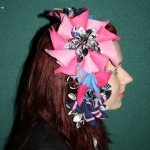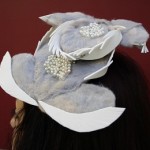Keith Varty – Biology/Science Teacher
When you watch this video you will observe a Science lesson where S2 pupils were actively engaged in learning about cell biology, specifically microscopy and cell structures. This lesson began with sharing the learning intentions, both visually and verbally, in the form of questions to allow pupils to recognise what their specific targets for successful learning would be.
Afterwards, the lesson progresses to the identification and description of parts of animal and plant cells and shows how I used an innovative approach to Smartboard use and Show Me Boards. This approach captivated pupils and focused them on their learning, whilst ensuring that they were actively engaged in activities that would allow formative assessment of the knowledge and understanding, which they had developed during the course of the topic.












